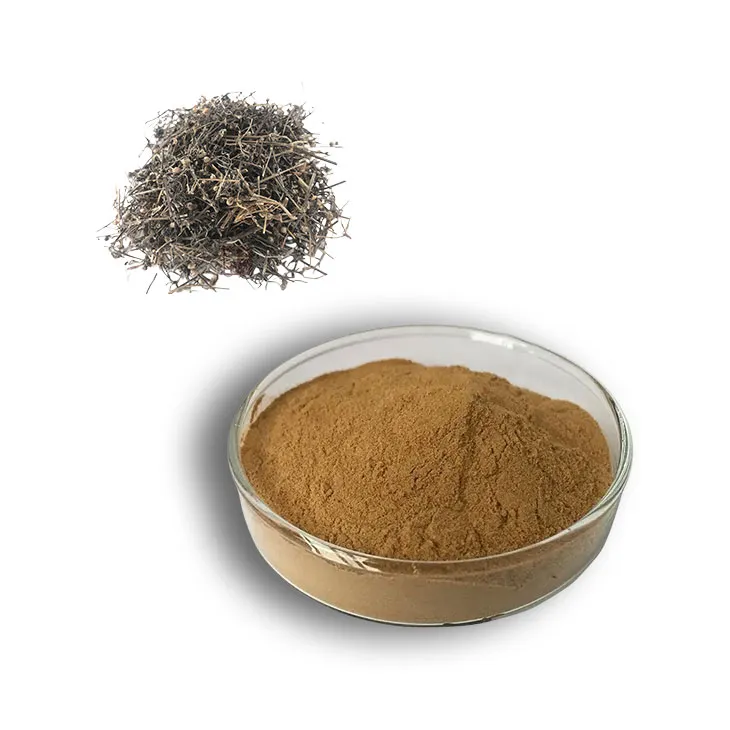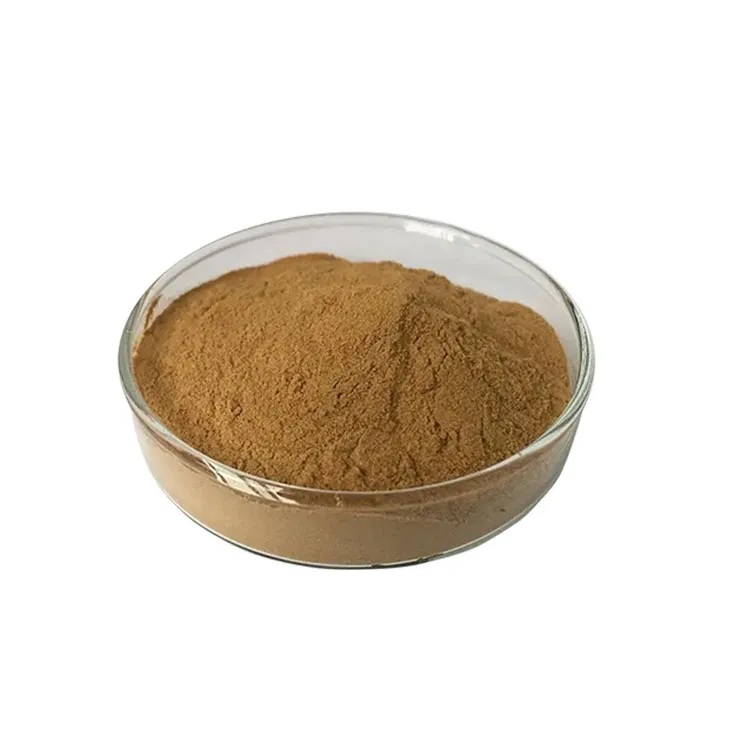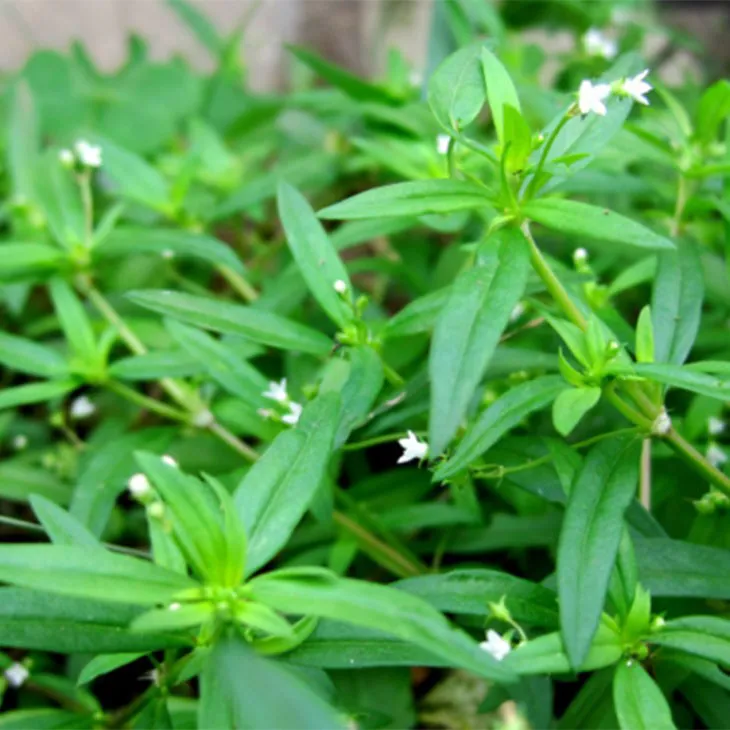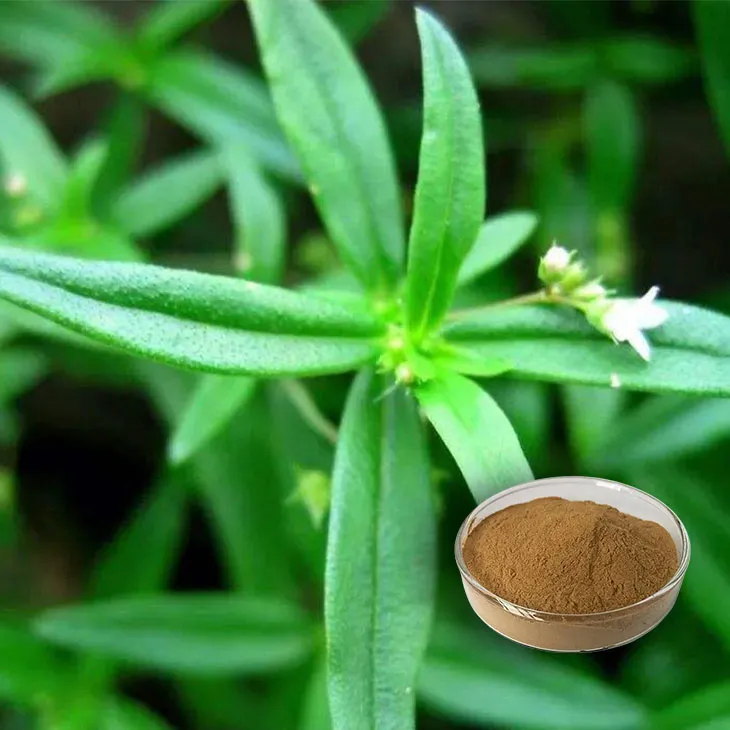- 0086-571-85302990
- sales@greenskybio.com
Bulk purchase of Hedyotis diffusa extract.
2024-11-29

1. Introduction
Hedyotis diffusa, a traditional Chinese medicinal herb, has been widely used in various fields. Its extract has attracted increasing attention in recent years. When considering the bulk purchase of Hedyotis Diffusa Extract, it is crucial to understand multiple aspects. This article aims to provide a comprehensive exploration of the economic implications and quality control mechanisms associated with such large - scale purchases.

2. Economic Implications of Bulk Purchase
2.1 Economies of Scale
Bulk purchasing of Hedyotis Diffusa Extract can lead to significant economies of scale. When buying in large quantities, the cost per unit of the extract is likely to decrease. This is due to several factors.
- Lower per - unit production cost: Suppliers can spread their fixed costs, such as equipment maintenance, research and development, and facility rent, over a larger number of units. For example, if a manufacturer has a fixed cost of $10,000 for a production batch regardless of the quantity produced, and they produce 1000 units in a small - scale production, the fixed cost per unit is $10. However, if they produce 5000 units in a large - scale, bulk production, the fixed cost per unit drops to $2.
- Bulk discounts from suppliers: Suppliers are more likely to offer discounts for large - quantity orders. They may have their own incentives, such as reducing inventory levels quickly or securing long - term business relationships. For instance, a supplier may offer a 10% discount on the list price for an order of 1000 kilograms of Hedyotis Diffusa Extract compared to a smaller order of 100 kilograms.
2.2 Impact on Cost Structure
The bulk purchase of Hedyotis diffusa extract also has a profound impact on the overall cost structure.
- Raw material procurement: In addition to the potential savings on the extract itself, bulk purchasing can also affect the cost of raw materials. If the extract is produced from fresh Hedyotis diffusa plants, a large - scale purchase may enable the buyer to negotiate better prices with farmers or suppliers of the raw plants. This can further reduce the overall cost of production.
- Logistics and transportation: Although the volume of the purchase is large, the cost per unit for transportation and logistics may decrease. For example, transporting a full truckload of Hedyotis diffusa extract may cost $1000. If the truck can carry 1000 kilograms, the cost per kilogram for transportation is $1. However, if the order is small and only 100 kilograms are transported, and the cost for a smaller vehicle is still $500, the cost per kilogram for transportation becomes $5.

3. Quality Control Mechanisms for Bulk Purchase
3.1 In - house Testing Procedures
For bulk purchases of Hedyotis diffusa extract, in - house testing procedures are essential to ensure quality.
- Identification of active ingredients: The first step in in - house testing is to accurately identify the active ingredients in the extract. This may involve techniques such as high - performance liquid chromatography (HPLC) or gas chromatography - mass spectrometry (GC - MS). These methods can help determine the concentration of key compounds in the Hedyotis diffusa extract, such as flavonoids and iridoids.
- Purity testing: Testing for purity is also crucial. Impurities can come from various sources, including the raw materials, the extraction process, or contamination during handling. In - house laboratories can use methods like spectroscopy to detect the presence of foreign substances in the extract.
- Stability testing: The stability of the extract over time needs to be evaluated. This involves storing samples of the extract under different conditions, such as different temperatures and humidity levels, and then testing their properties at regular intervals. If the extract is found to degrade quickly under normal storage conditions, it may not be of high quality.
3.2 Third - party Certifications
Third - party certifications play an important role in quality control for bulk purchases of Hedyotis diffusa extract.
- Certification bodies: There are several well - known certification bodies in the field of herbal extracts. For example, the United States Pharmacopeia (USP) offers certification programs for herbal products. These certification bodies have strict standards and procedures for evaluating the quality of Hedyotis diffusa extract. They typically assess factors such as the manufacturing process, quality control measures in place, and compliance with regulatory requirements.
- Benefits of third - party certifications: Having a third - party certification provides several benefits. It gives buyers an additional level of confidence in the quality of the extract. It can also help in marketing the product, as it indicates that the extract has met certain recognized quality standards. Moreover, in some cases, third - party certifications may be required by regulatory authorities or by customers in certain markets.
3.3 Role of International Quality Standards
International quality standards are crucial for ensuring the quality of Hedyotis diffusa extract in bulk purchases.
- ISO standards: The International Organization for Standardization (ISO) has developed standards that are relevant to the production and quality control of herbal extracts. For example, ISO 9001 focuses on quality management systems, which can be applied to the production process of Hedyotis diffusa extract. Adhering to these standards helps ensure that the manufacturing process is well - organized, with proper documentation, quality control, and continuous improvement mechanisms in place.
- Good Manufacturing Practice (GMP): GMP is another important international standard for the production of herbal extracts. It covers aspects such as personnel hygiene, facility design and maintenance, and proper handling of raw materials and finished products. By following GMP, manufacturers can reduce the risk of contamination and ensure the consistent quality of their Hedyotis diffusa extract.

4. Market Competition for Hedyotis diffusa Extract
4.1 Price Competition
The market for Hedyotis diffusa extract is highly competitive in terms of price.
- Low - cost producers: There are producers in different regions that can offer Hedyotis diffusa extract at relatively low prices. These producers may have lower production costs due to factors such as lower labor costs, access to cheaper raw materials, or more efficient production processes. For example, in some developing countries, the cost of labor is significantly lower than in developed countries, which can translate into lower production costs for the extract.
- Price - based market share competition: In a competitive market, producers often compete for market share based on price. A producer may choose to lower the price of their Hedyotis diffusa extract to attract more customers. However, this price - cutting strategy needs to be balanced with maintaining quality, as customers are also increasingly concerned about the quality of the products they purchase.
4.2 Quality Competition
Quality is also a key aspect of competition in the Hedyotis diffusa extract market.
- High - quality product differentiation: Some producers focus on producing high - quality Hedyotis diffusa extract with a high concentration of active ingredients and strict quality control. These high - quality extracts can be sold at a premium price in the market. For example, an extract with a very high purity level and a precisely determined composition of active ingredients may be targeted at high - end customers in the pharmaceutical or nutraceutical industries.
- Quality - driven brand building: Building a brand based on quality can also be a competitive strategy. A brand known for its high - quality Hedyotis diffusa extract can gain customer loyalty and a positive reputation in the market. This can lead to increased market share and long - term business success.

5. Conclusion
In conclusion, the bulk purchase of Hedyotis diffusa extract involves a complex interplay of economic factors, quality control mechanisms, and market competition. Understanding the economies of scale and cost structure implications is essential for making cost - effective purchases. Implementing robust quality control mechanisms, including in - house testing, third - party certifications, and adhering to international quality standards, is crucial for ensuring the quality of the purchased extract. Moreover, being aware of the price and quality competition in the market can help buyers make more informed decisions. Overall, a comprehensive approach that takes into account all these aspects is necessary for successful bulk purchases of Hedyotis diffusa extract.
FAQ:
What are the main economic benefits of bulk purchasing Hedyotis diffusa extract?
Bulk purchasing of Hedyotis diffusa extract can bring several economic benefits. Firstly, it often leads to economies of scale. This means that as the quantity purchased increases, the cost per unit may decrease. Suppliers are more likely to offer discounts for large - volume orders. For example, they may reduce the price per kilogram of the extract. This can significantly reduce the overall cost of procurement, which is beneficial for businesses. Secondly, it can also lead to more stable supply relationships. Suppliers may prioritize large - volume buyers, ensuring a continuous supply of high - quality Hedyotis diffusa extract.
How can one ensure quality control in bulk purchase of Hedyotis diffusa extract?
Ensuring quality control in the bulk purchase of Hedyotis diffusa extract involves multiple steps. In - house testing procedures are crucial. This can include chemical analysis to verify the purity and composition of the extract. For example, testing for the presence of active ingredients at the appropriate levels. Third - party certifications also play a significant role. Reputable third - party laboratories can provide independent verification of the quality of the extract. They can test for contaminants, such as heavy metals or pesticides. Adhering to international quality standards is another important aspect. Standards like Good Manufacturing Practice (GMP) ensure that the production and extraction processes meet certain quality benchmarks.
What is the impact of market competition on the price of bulk - purchased Hedyotis diffusa extract?
Market competition has a substantial impact on the price of bulk - purchased Hedyotis diffusa extract. In a competitive market, multiple suppliers vie for customers. This competition can drive down prices as suppliers try to offer more attractive deals. For example, if there are many suppliers of Hedyotis diffusa extract in a particular region, they may lower their prices to gain a larger market share. However, competition is not only about price. Quality also plays a role. Suppliers may also compete on the quality of their extract, such as by offering a higher - purity product. This can influence the overall price - quality relationship in the market for bulk - purchased Hedyotis diffusa extract.
How can one find reliable suppliers for bulk purchase of Hedyotis diffusa extract?
To find reliable suppliers for bulk purchase of Hedyotis diffusa extract, several methods can be employed. One can start by conducting market research. This includes looking at industry directories, which list suppliers in the field. Online platforms can also be useful, where suppliers showcase their products and services. Checking references and reviews from other buyers is crucial. If a supplier has a good reputation among previous customers, it is more likely to be reliable. Another aspect is to verify the supplier's compliance with quality standards. Suppliers that adhere to international quality standards, such as ISO certifications, are generally more reliable. Additionally, visiting the supplier's facilities, if possible, can provide first - hand information about their production processes and quality control measures.
What are the potential risks in bulk purchasing Hedyotis diffusa extract?
There are several potential risks in bulk purchasing Hedyotis diffusa extract. One risk is related to quality variability. Despite quality control measures, there may still be differences in the quality of the extract from different batches or suppliers. This can affect the effectiveness of the product in its intended applications. Another risk is market price fluctuations. The price of Hedyotis diffusa extract may change due to factors such as changes in raw material availability or market demand. If the price drops significantly after a bulk purchase, the buyer may face financial losses. There is also the risk of supply disruptions. Natural disasters, political instability, or other unforeseen events in the regions where the plant is sourced can disrupt the supply of Hedyotis diffusa extract.
Related literature
- Quality Assurance in Botanical Extracts: The Case of Hedyotis diffusa"
- "Economic Analysis of Bulk Purchasing in Herbal Extract Markets: Focus on Hedyotis diffusa"
- "Market Competition and Pricing Strategies for Hedyotis diffusa Extract"
- ▶ Hesperidin
- ▶ Citrus Bioflavonoids
- ▶ Plant Extract
- ▶ lycopene
- ▶ Diosmin
- ▶ Grape seed extract
- ▶ Sea buckthorn Juice Powder
- ▶ Fruit Juice Powder
- ▶ Hops Extract
- ▶ Artichoke Extract
- ▶ Mushroom extract
- ▶ Astaxanthin
- ▶ Green Tea Extract
- ▶ Curcumin
- ▶ Horse Chestnut Extract
- ▶ Other Product
- ▶ Boswellia Serrata Extract
- ▶ Resveratrol
- ▶ Marigold Extract
- ▶ Grape Leaf Extract
- ▶ New Product
- ▶ Aminolevulinic acid
- ▶ Cranberry Extract
- ▶ Red Yeast Rice
- ▶ Red Wine Extract
-
Lemon Balm Extract
2024-11-29
-
Buckthorn bark extract
2024-11-29
-
Kelp Extract Powder
2024-11-29
-
Konjac Powder
2024-11-29
-
Beta Carotene
2024-11-29
-
Carrageenan Extract Powder
2024-11-29
-
Motherwort Extract
2024-11-29
-
Saponin Extract
2024-11-29
-
Chaste Berry Extract
2024-11-29
-
Bamboo Leaf extract
2024-11-29





















